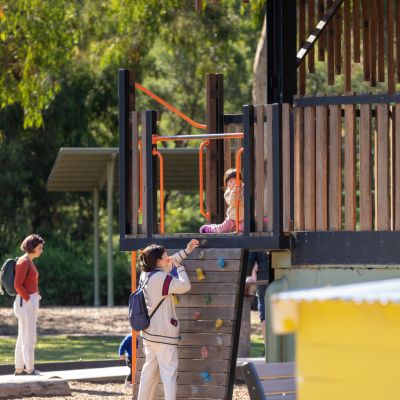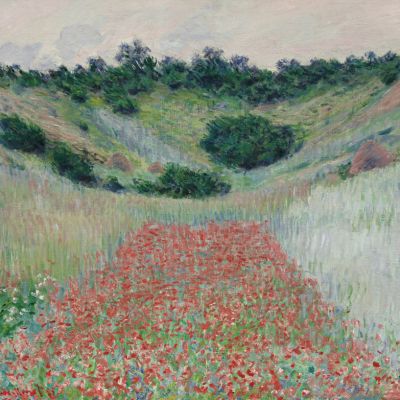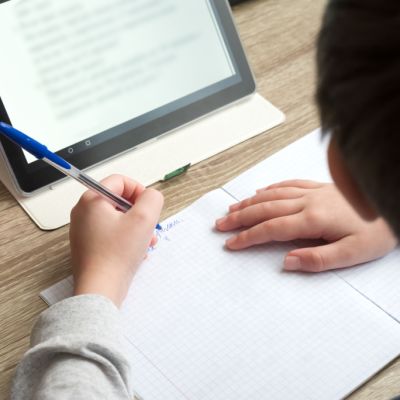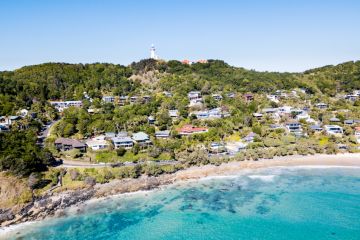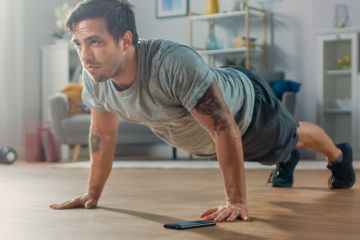‘What am I doing with my life?’ Survivor host Jonathan LaPaglia on lessons from the pandemic
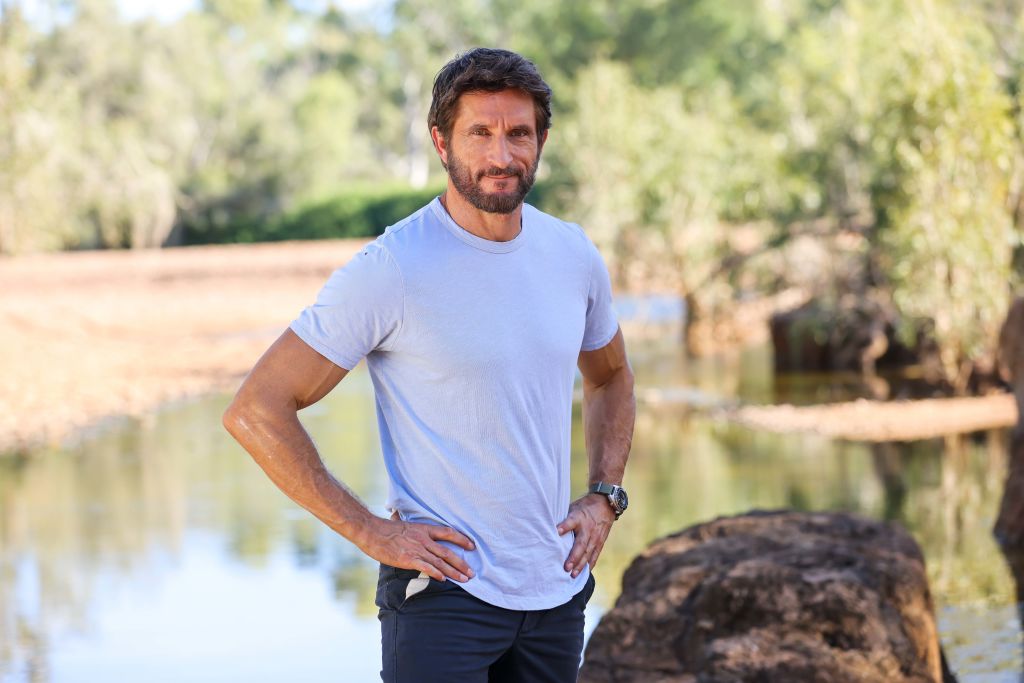
It’s been 27 years since Jonathan LaPaglia left Australia to pursue his acting career in the United States, but a three-month stint in outback Queensland to film the new season of Australian Survivor got him thinking about his own connection to country.
It’s the first time this incarnation of the local reality TV game show has been filmed in Australia.
This time around, its base is the town of Clonclurry, a dusty, arid part of the outback nicknamed “The Curry” and an eight-hour drive inland from Townsville. This is a place where temperatures climb to the high 40s and is described by the locals as a place that’s hotter than a vindaloo.
“I’ve always been fascinated by the outback, but I have never actually ventured out there on any meaningful level,” says LaPaglia. “It’s always appealed to me but I guess living in the United States means it’s not always been as possible for me to get there.”
There was no local cafe downtime or poolside view to be found here; instead, LaPaglia was more likely to travel up to four hours a day on gravel roads to get from one contestant trial to another.
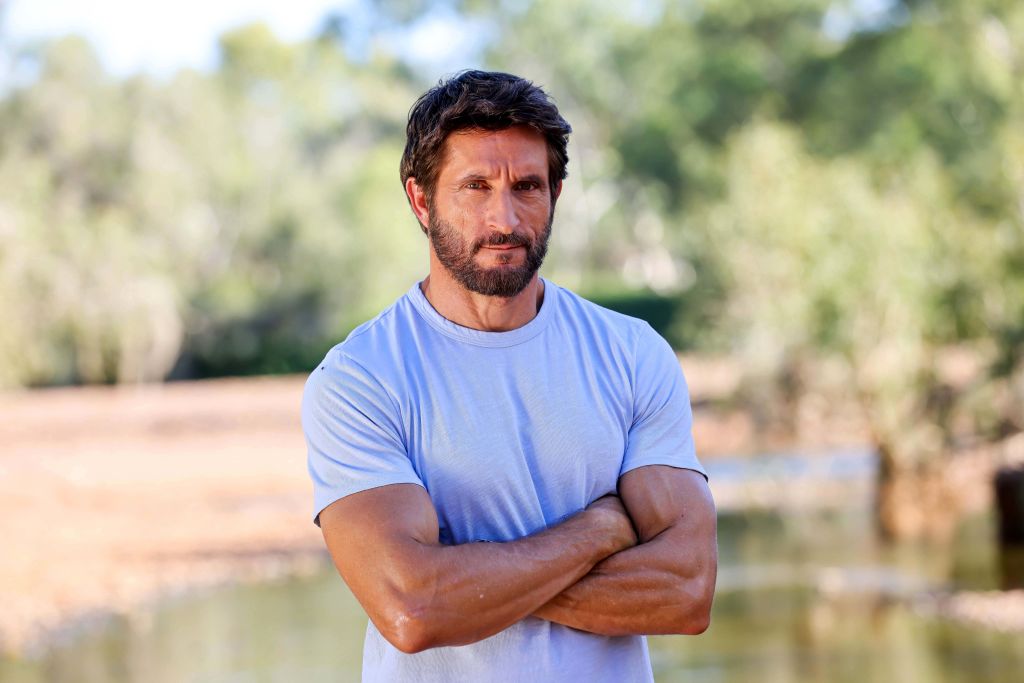
“To see this amazing country and understand just how tough the environment is, is something you only can realise when you’re there experiencing it yourself,” he says. “It’s a tough place for people to live and work. I certainly have a newfound respect for people who call the outback their home.”
This year’s theme is Brains v Brawn, and contestants include former AFL player Gavin Wanganeen, the first Indigenous player to win a Brownlow medal, big-wave surfer Felicity Palmateer and award-winning author Wai Chim. But, according to the host, it’s less about beauty or brains and more about your social skill in navigating the mind-game ahead.
LaPaglia has been hosting Australian Survivor since 2016, but it’s the first time he’s swapped exotic locations such as Fiji and Samoa for remote grit. He took the change of scenery in his stride but says the filming schedule was hectic for everyone, from contestants to crew.
“Once the train leaves the station it doesn’t stop,” says LaPaglia of the work grind. “We film 24/7 … I really didn’t have time to do much else other than get up and go to work and then to bed. I went to a restaurant once the whole time I was there.”
LaPaglia packed books to read on his trip, only to find himself too exhausted to dip into them.
He did, however, find a brief moment to put pencil to paper and draw – it’s a hobby he always wished he had pursued, and only since the pandemic hit has he had a chance to dive deeper into it. He occasionally posts a sketch to his Instagram page.
LaPaglia, 51, lives in California with his Australian wife, actress and writer Ursula Brookes, and their daughter, Tilly, 16. Being away from his family wasn’t easy and trying to align schedules for FaceTime was also problematic.
“Being away from my family is always the hardest part of my job,” LaPaglia says. “Our work schedules made it hard to connect. But it was the rare moments I could FaceTime them that really kept me going.
“My wife and daughter’s schedule weren’t in sync with my own, and time differences definitely made it difficult. You know those moments you want to see someone or hear their voice but can’t? We all know that feeling.”
The upside of being granted access to fly to Australia for work meant LaPaglia could catch up with his mother, Maria, while here.
“My father [Eddie] died eight years ago and my mother lives by herself. Her health hasn’t been great,” he says. “I hadn’t seen her for 14 months due to the pandemic, so to be able to see her again was such a relief.”
Long before he was tempted to pursue acting, LaPaglia left his hometown of Adelaide to work as an emergency doctor in Sydney and the UK after graduating from the University of Adelaide.
“I specialised in emergency medicine but got distracted by acting and never went back,” he says. “But it was drawing I always wanted to do. I actually enrolled in Fine Art at the University of Adelaide and did that for a little while before transferring to medicine.
“I had more friends going into medicine so maybe that was the reason for the switch, or maybe my father talked me out of it – telling me I’d never make a living as an artist.
“It’s a skill I have neglected for decades and I feel I need to invest more time in it.”
While there are no immediate plans to return to Australia, LaPaglia hints he’s keen to do some film or drama work if the opportunity presents itself.
Would he relocate with the family back to Australia?
“It’s something that occasionally pops up in conversation at home,” he says. “Who knows, maybe in the future we may, but right now our daughter is entrenched in schooling and that dictates everything at this point.”
LaPaglia reflects fondly on his time filming The Slap in Melbourne in 2011. It was the first time he was cast in an Australian TV series to play the lead – in this case, the protagonist Hector. He returned to film Underbelly: Badness a year later.
“I had my apartment in St Kilda. It was a great time. I’d love to do something like that again,” he says.
Best known for his US acting roles as Frankie B. Parker in the TV series Seven Days and detective Tommy McNamara in New York Undercover, LaPaglia admits the pandemic and US election put his own life in perspective.
“I think, like many people, the pandemic brought many things into focus,” LaPaglia says.
“I found myself asking, ‘What am I doing with my life?’ I became more aware of my own mortality. I was questioning my professional and personal choices and realised, at the end of the day, I need to make more of life and say yes to more of the opportunities that are presented to me.
“It’s human nature to slip into old habits. Many people fall back into their old ways but I’m determined not to do that. I am certainly a victim of that, and really only time will tell.”
Australian Survivor \ Premieres Sunday, Network 10
We recommend
We thought you might like
States
Capital Cities
Capital Cities - Rentals
Popular Areas
Allhomes
More
